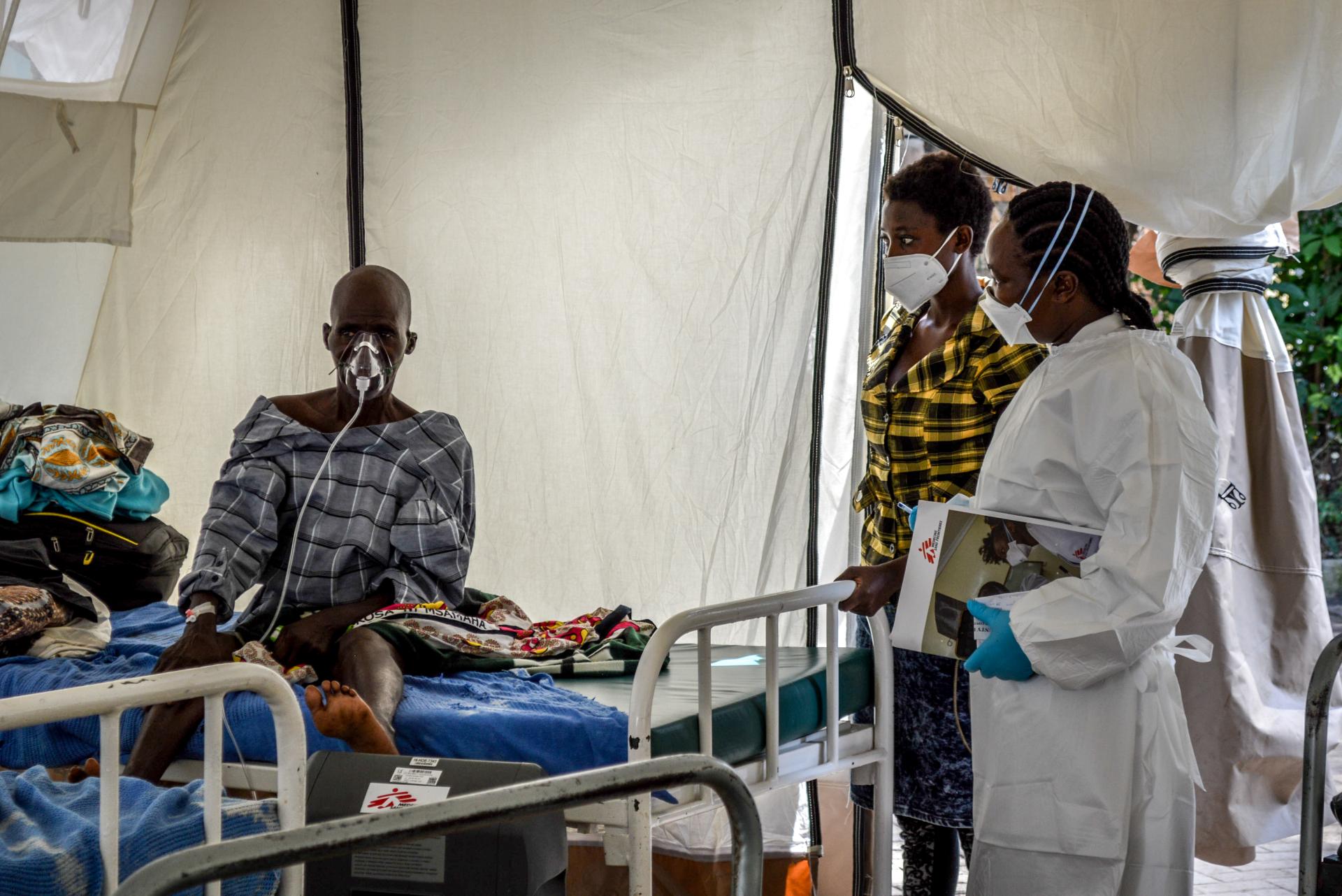The number of patients admitted in the Homa Bay County Teaching and Referral Hospital (HBCTRH) due to COVID-19 has more than doubled since early May and MSF—which currently manages the isolation centre in the hospital—has had to progressively ramp up its response by setting up additional High Dependency Units (HDUs) in tents inside the hospital compound to increase the bed capacity to 32 from the initial 10.
All patients admitted into the facility are in severe to critical conditions with three out of four requiring oxygen therapy. In the month of May alone, 98 patients with COVID-19 were admitted in the facility, with similar number of patients having been admitted within the first three weeks of June. Twenty patients died in the facility due to complications from the virus in May.
“The situation is getting more dire by the day, and currently close to half of the people we test at the Homa Bay County Referral Hospital turn positive for COVID-19,” says Ms Roshni Mahida, the project coordinator for MSF in Homa Bay. “To better respond to the COVID surge, we would like to see more personal protective equipment (PPE), rapid diagnostic tests, medicines and oxygen back-up.”
Since April 2021, MSF has been routinely testing all patients admitted into the medical in-patient wards of HBCTRH, to ensure continuity of appropriate care for both COVID-19 positive and negative patients requiring hospitalisation.
On Thursday, 17 June 2021, the government of Kenya imposed tougher measures aiming at containing the spread of COVID-19, after a sharp increase in cases was reported in 13 counties, including Homa Bay. For more than 10 weeks now, the number of patients turning positive for COVID-19 in Homa Bay has been increasing steadily, with the weekly average positivity rate so far reaching a high of 50% in the third week of June for patients tested in the county’s teaching referral hospital (HBCTRH) medical wards.
In this already worrying situation, a healthcare workers’ “go-slow” in the county to protest delays in payment of their salaries has dealt a further blow. Today, patients are not coming to the hospital, thinking it is closed because of the “go-slow” while MSF-supported inpatient wards for adult medicine, tuberculosis (TB) and COVID-19 remain open.
“Many people are sick out there but they think there are no services being offered in the government facilities. The private hospitals are expensive. So people are only coming to hospital when it’s too late,” says 38-year old Helida Odhiambo, who was admitted to the referral hospital after testing positive for COVID-19.
MSF is working closely with the county and other partners to help get Kandiege isolation centre in the county operational.
“Most importantly, it is urgent to strengthen preventive measures by encouraging the community to adhere to COVID-19 measures, boost COVID-19 vaccine uptake and to seek testing and treatment early. MSF humbly requests collaboration between all actors to help spread this message throughout the community,” adds Ms Mahida.
ABOUT MSF
Médecins Sans Frontières/Doctors Without Borders (MSF) is an international, independent, medical humanitarian organisation that delivers emergency aid to people affected by armed conflict, epidemics, natural disasters and exclusion from healthcare in more than 70 countries around the world including Kenya in counties of Homa Bay, Nairobi, Mombasa, Embu, Kiambu and Garissa in Dadaab Refugee Camp.
MSF offers assistance based on need, irrespective of tribe, race, religion, gender or political affiliation. Our actions are guided by medical ethics and the principles of neutrality and impartiality. In 1999, MSF was awarded the Nobel Peace Prize.
